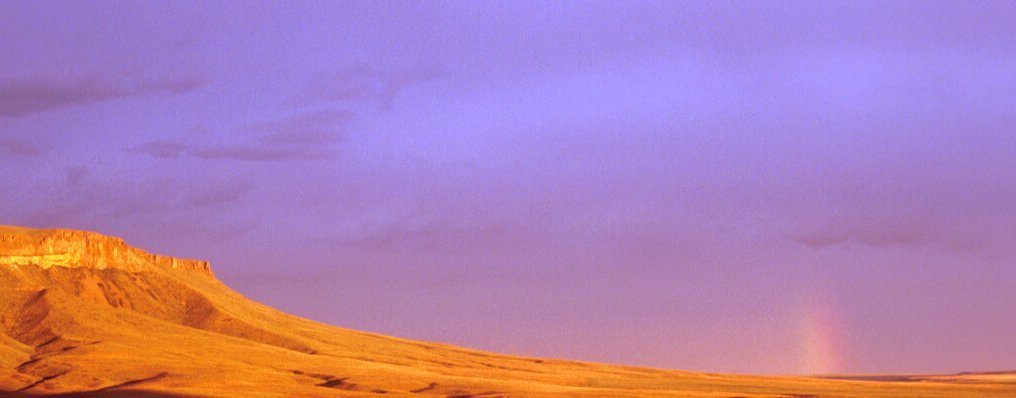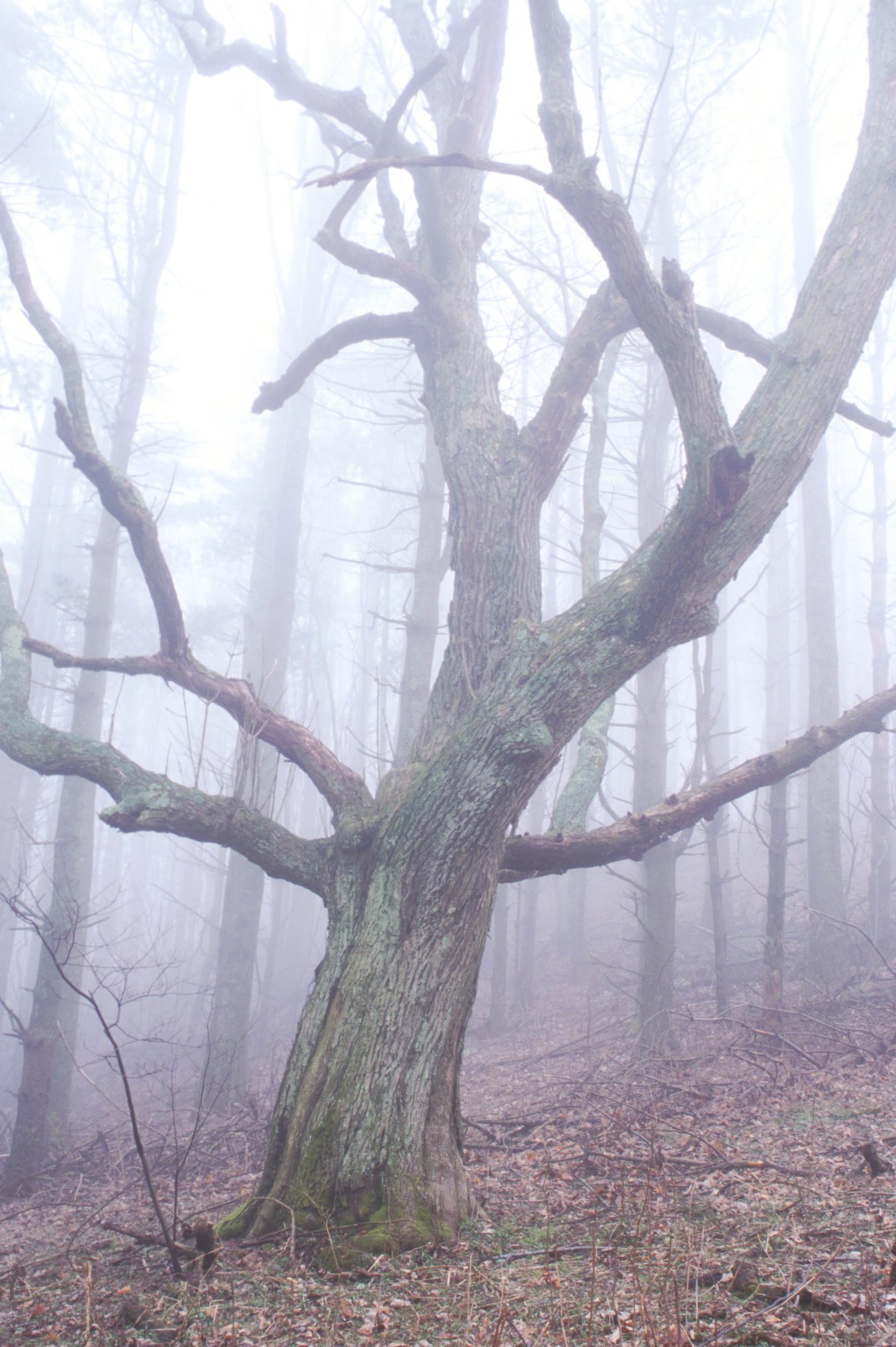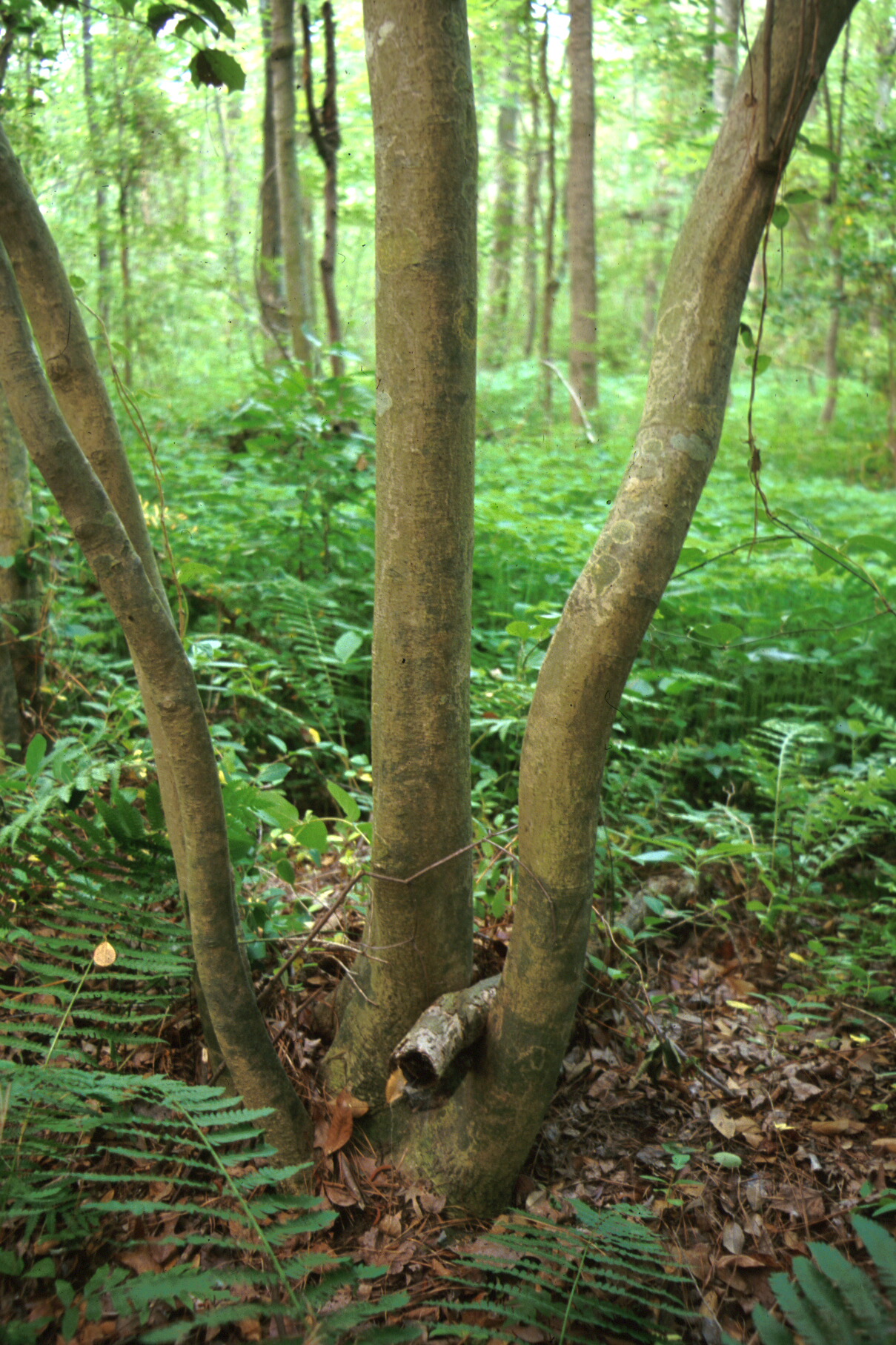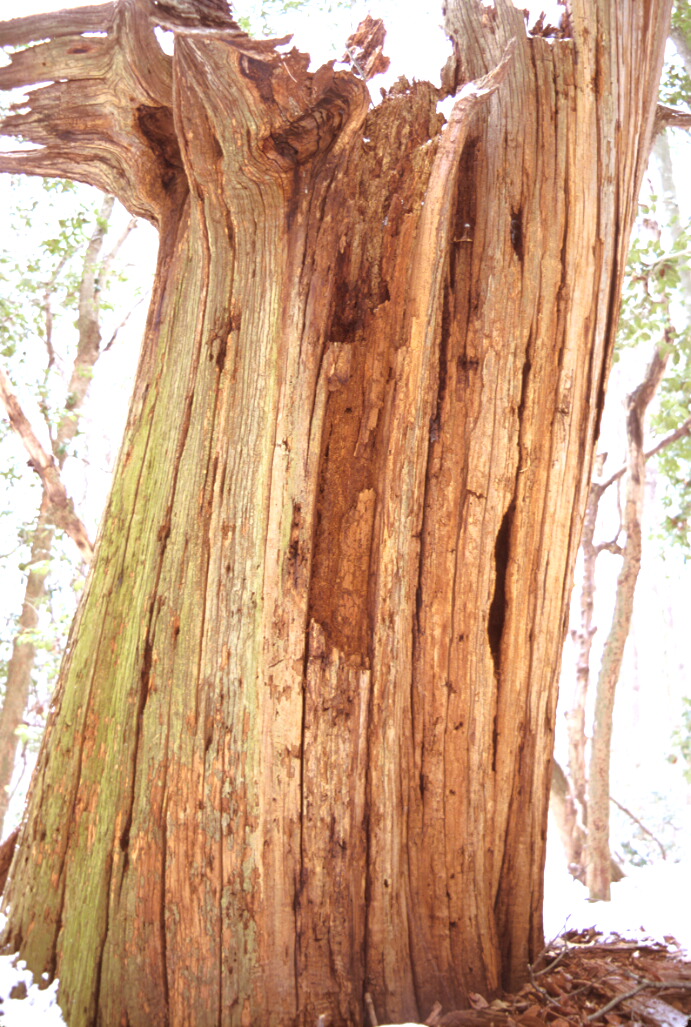Imagining the Earth: Cultural Approaches to Nature


COURSE DESCRIPTION:
How might our knowledge of the earth be the outcome of how we approach the earth and invite it to approach us? If we humans are to form a culture, we must, as the word implies, cultivate our surroundings. To be human is to be of the earth and so always already participating in it. The earth and its living creatures, David Strong suggests in Crazy Mountains, can reveal the depths of our existence, of how we are called to be born and to die, to live faithfully, to suffer willingly what requires our sacrifice. What we humans know, how we live and who we come to be will be determined at least in part by how we choose to take up the unavoidable task of culturing ourselves and the earth.
In a world increasingly mediated by technological forms of participation in the earth--whether they be images on a television set, automobiles coursing through the countryside, or telescopes trained upon the heavens--we find our cultivation of the earth profoundly transformed. On the one hand, we find in our hands (or is it in our robotic pincers and socket wrenches?), the power to remake landscapes, to level mountain ranges and turn deserts into green lawns and groves of trees. We have been able to make the earth an increasingly safe and comfortable place in which to live. An Eden, some would say. And we are quite proud of the sorts of knowledge that have gone into the building of this Eden. On the other hand, we are haunted by the suspicion that our very control over the earth has somehow put us at odds not only with it but also with our very selves. In this mode of alienation, we define our culture precisely by the measure of how it affords us increasingly less contact with the earth. And even when we cultivate that contact, as in the case of all terrain vehicles, jet skis or Disney theme parks, our very act of approach actually puts the earth yet again at bay. We find ourselves hungering for other sorts of knowledge of the earth that would allow us to renew our contact with it.
But are other forms of knowing the earth possible and what might they show us? To consider this question, we will turn to several other cultural traditions (as well as important variants of our own!) to see how each mediates a participation in the earth that might serve as an alternative to the technological approach now dominating our lives. In taking up these other paths, we will assume the task of becoming critically aware of them not only in modes of writing and thought with which we are familiar (essays and discussion presentations) but also in at least some of the manners of speaking and acting which a particular cultures cultivates. We will engage, to the best of our abilities, in some other cultural forms of knowing, whether they be contemplating a mandala, engaging in a tea ceremony, composing haiku, enacting a clown dance, walking a songline, or going on a vision quest. In doing so, we will admit we are not so much crossing over into the world of that other culture as we are translating to the best of our abilities what that other cultural tradition might be able to offer us. We will ask how we might be changed by what we are able to perceive of another tradition's questions and ways of knowing. We will also entertain alternative modes of knowing the earth found within our own culture--whether they be storytelling around a fire, a desert retreat, a wilderness hike, walking a Christian labyrinth.
Each student will be asked to keep a journal reflecting on her or his experiences in the course. Each student will also be expected to create (or help create) a particular mode of knowing the earth that she or he could both practice and teach to others.
Nature and Spirit, Video
Crazy Mountains by David Strong
The Book of Job (xeroxed selections)
Earth's Mind: Essays in Native Literature by Roger Dunsmore
Dwellings: A Spiritual History of the Living World by Linda
Hogan
The Art of Haiku by Robert Hass
Questions of Heaven: The Chinese Journeys of an American Buddhist
by Gretel Ehrlich
The Songlines by Bruce Chatwin
Supplemental Texts:
The Way of the Earth: Encounters with Nature in Ancient and Contemporary
Thought by T. C. McLuhan
The Practice of the Wild by Gary Snyder
The Spell of the Sensuous by David Abram
Supplemental Films:
Derzu Ursala by Kirusawa
The Little Buddha by Bertolucci
Pow-Wow Highway by Jonathan Wacks
Walk About by Wier



Weekly Reflection on Imagining the Earth (10).........................................30%
Reading Questions (5 sets)..........................................................................20%
Two Class Presentations with Questions.....................................................20%
"Ten Haiku".................................................................................................05%
Final Project..................................................................................................15%
Class Participation........................................................................................10%
ASSIGNMENTS:
Weekly Reflection on Imagining the Earth: Write at least one full typewritten page in which you reflect on how what was read and discussed the previous week of class in some way affected or changed or questioned a specific preconception you have held about the earth.
Reading Questions: Write paragraph long answers to a set of questions about a reading assignment. To be turned in the day the reading is to be discussed in class. This assignment encourages you to read thoughtfully and to be ready to discuss specific questions the day of class. This assignment will be required for the following books: Dwellings, The Essential Haiku, Questions of Heaven, The Songlines.
Class Presentations with Questions: You will be responsible for helping to lead class discussion on one of the assigned chapters in Crazy Mountains and in Earth's Mind. You will prepare a set of five questions on your chapter that you will hand in the day of class. You will then answer three of these questions in an essay format to be handed in the following week.
Ten Haiku: Write ten haiku based on your reading of Robert Hass's The Essential Haiku
Final Project: You will work in a group of four students to teach and practice a meditation, a phenomenological exercise, or a ceremony that you think would help your fellow humans become more deeply reflective about their relationship with the earth. This will require you to do some outside research on cultural practices. Some ideas: Tea Ceremony, Mandalas, Sand Paintings, Journal Writing, Garden Design, Song Lines, Sweat Lodges, Ikebana, Buddhist Meditations, Christian Mazes. Each group will work as a whole to organize and present this project on the final night of class (12/11). Then each student will write a three page paper due during finals week on what they learned in working on this project. Each group of students must choose a unique project--no two groups can do the same project. I will be happy to help students find resources on each project.
Required Field Experience: As part of your participation grade you are required to attend two events: 1) The Sweat Lodge which is to be held the evening and night of 10/13 (Rain Date: 10/14) on Assateague Island. Transportation will be provided; 2) The Creation of the Sand Mandala in The Fulton Gallery, which is occurring during the entire week of 11/12-11/16.
Class Meeting on 11/13: Keep in mind that our class on that night will meet at the Wicomico Room at 7 p.m. for a lecture (funded by the Honors Program for the benefit of your class!) presented by Tibetan Monks who will be visiting campus to create a Sand Mandala. We will sit together and meet after the lecture (if the lecture ends before 9:15 p.m.) for a discussion of what we have just heard.
Additional Optional Field Experience/Speakers: 1) On Saturday, November 17th, the multiphonic singers of Drepway Losling Monastery are giving a concert in Holloway Hall; 2) On Wednesday, October 3rd in the Wicomico Room, my new colleague in Philosophy, Dr. Deepak Sarma will be taking part in a Hindu/Buddhist dialogue with Dr. Duncan Williams of Trinity College on the theme of environmental awareness.
ATTENDANCE: If you miss more than three meetings of the class, you will lose a grade for each additional absence. No excuses please. You have three absences gratis. After that, it doesn't matter what the reason is, your grade goes down. Remember that each class counts for an entire week's worth of work and that participation is a very important feature of this course.
CLASS SCHEDULE OF TOPICS, READINGS, ASSIGNMENTS
A) Technological Culture: Nature as Resource and Recreation
Week One (9/4): Where Are We and Where is the Earth?
Video: Nature and
Spirit
Class Exercise: Drawing
a Map of Your Earth
ORIGINAL WEEK TWO CANCELLED (9/11)
Week Two (9/18): Earth Damage
Crazy Mountains, ch. 1, 2
Week Three (9/26): Technological Subversion
Crazy Mountains, ch. 5
B) Judeo-Christian Culture: The Creator's Transcendence and Nature's Mystery
Week Four (10/2): Correlational Coexistence and Creation in The Book of Job
Crazy Mountains, ch.
4, 7
Selection from The Book
of Job
Power Point Presentation
on Andrew Goldsworthy's Earth Art
Week Five (10/9): Dwelling and Wandering in Thoreau and Bugbee
Crazy Mountains, ch.
8, 9, 10
Power Point Presentation
on the Conceptual Art of Hamish Fulton, Hiker
FIRST SET OF CLASS PRESENTATIONS FINISHED
C) Native American Culture: Finding One's Place
Week Six (10/16): Earth's Mind I
Earth's Mind, "Earth's
Mind"; "Transformation"; "Columbus Day Revisited"
Exercise (10/13;
Rain Date 10/14): Sweat Lodge Gathering on Assateauge Island (REQUIRED!!!)
Week Seven (10/23): Earth's Mind II
Earth's Mind, "Nicholas Black Elk," "Trud," "Fusion."
SECOND SET OF CLASS PRESENTATIONS FINISHED
Weeks Eight and Nine (10/30 and 11/6) : Dwellings
Dwellings: Selected
Essays (All my Relations, What Holds the Water, What Holds the Light, A
Different Yield,
Creations, Dwellings, Walking)
ASSIGNMENT: Reading Questions
Go
to Questions
D) Buddhist Culture: The Compassionate Identification with All Living Beings
NOW WEEK ELEVEN (11/20!): Writing Haiku and Reading Buddhist Earth
The Essential Haiku:
"The Hut of the Phantom Dwelling," "The Saga Diary," "Journal of My Father's
Last Days," "A
Year of my Life," "Learn
from Pine"
ASSIGNMENT: Reading Questions
Go
to Questions
ASSIGNMENT: "Ten Haiku"
(This
assignment only, Now Due 11/6)
CANCELLED: Original Week Ten (11/6): Buddhist Mountains Meet the Contemporary World
Questions of Heaven NO
LONGER ASSIGNED
ASSIGNMENT: Reading
Questions NO LONGER ASSIGNED
Week Ten (11/13): "The Symbolism of the Sand Mandala"
Required:
Lecture
by the Tibetan Monks of the Drepung Loseling Monastery in the Wicomico
Room (11/13)
Required:
Viewing
of Sand Mandala (11/11-11/15)
Optional:
Saturday Evening Concert of the Multiphonic Singers of Drepung Loseling
Monastery (11/17)
Week Eleven (11/20): SEE ABOVE ON HASS's BOOK ON HAIKU!
E) Aboriginal Culture: Dreaming the World into Existence
Week Twelve (11/27): Songlines, Part I
The Songlines, pp.
1-99
ASSIGNMENT: Reading Questions
Questions
Week Thirteen (12/4): Meditations, Ceremonies, Stories
The Songlines, p.
99-162
ASSIGNMENT: Reading Questions
Week Fourteen (12/11): Meditations, Ceremonies, Stories
ASSIGNMENT: Presentation
of Group Projects